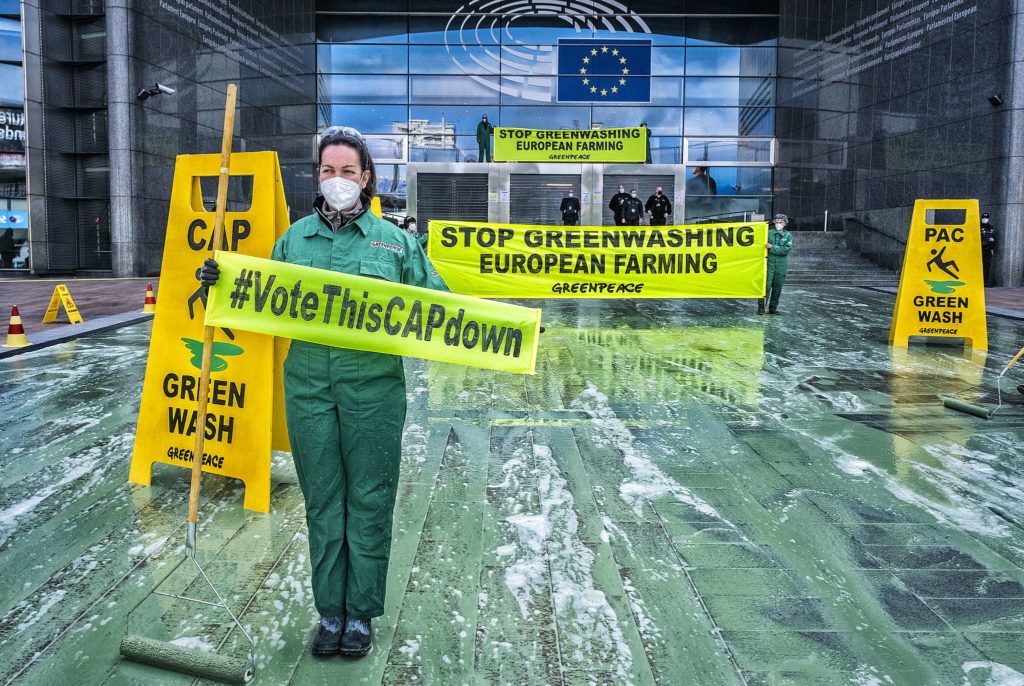The entrance of the European Parliament in Brussels was painted green by fourteen Greenpeace Belgium activists, who poured green water on the floor in protest of the outcome of negotiations on the European Union's Common Agricultural Policy (CAP).
The non-profit environmental organisation has accused the representatives from European governments, the European Parliament, and the European Commission, who are inside the building finalising negotiations on the EU’s farming policy for the next seven years, of selling it as a green reform, whilst it is "nothing but greenwashing."
"This CAP is set to continue bankrolling industrial animal farming and animal feed production that devastate nature, wreck the climate, increase the risk of new pandemics, and put small farms out of business," Greenpeace EU agriculture policy director Marco Contiero said in a statement.
Greenpeace pointed out that the current policy has been condemned by scientists, the European Parliament’s own research, and the European Environmental Bureau, as well as BirdLife and ClientEarth, and analysis found that "the CAP deal the EU is finalising fails on all fronts."
"But despite knowing all this, the CAP’s destructive impact on nature, the climate, and public health remains unchanged," the organisation said.
[BREAKING] Activists colour EU Parliament green as negotiations on EU's #FutureOfCAP farming reform enter final stages inside
This is no green farm policy, just #greenwashing The CAP plan is a disaster for small farms, nature & climate – EU Parliament must #VoteThisCAPDown pic.twitter.com/KaFgSAOx6P — Greenpeace EU (@GreenpeaceEU) May 26, 2021
Greenpeace has argued that increased flexibility given to national governments by this new plan will make it exceptionally difficult for the Commission to ensure that national plans are implemented, whilst many national governments have very poor track records in following environmental laws and delivering ecological benefits.
On 1 June 2018, the European Commission presented the legislative proposals on the future of the CAP, and the European Parliament came to a decision on EU’s CAP for the next budget period (2021 – 2027) in October last year, and it was adopted by a majority of 425 votes for and 212 against.
The proposals for the reformed policy, which is expected to be implemented from 1 January 2023, aim to "incorporate the sustainable ambitions of the European Green Deal," according to the European Commission.
In the coming months, national governments will submit their national farming plans to the European Commission for approval, laying out how they will implement the CAP reform in their country.
The agreement on the CAP reform will have to be formally adopted by the European Parliament, which is expected to vote on the matter after the summer, and the Council, which can adopt the deal during any EU ministers’ meeting.
Greenpeace has called on members of the European Parliament to reject this common agricultural policy reform.

